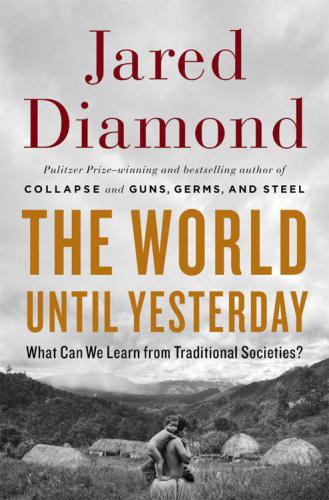Product desciption
What Can We Learn From Traditional Societies Diamond Jared by Diamond Jared 9781101606001, 1101606002 instant download after payment.
Most of us take for granted the features of our modern society, from air travel and telecommunications to literacy and obesity. Yet for nearly all of its six million years of existence, human society had none of these things. While the gulf that divides us from our primitive ancestors may seem unbridgeably wide, we can glimpse much of our former lifestyle in those largely traditional societies still or recently in existence. Societies like those of the New Guinea Highlanders remind us that it was only yesterday, in evolutionary time, when everything changed, and that we moderns still possess bodies and social practices often better adapted to traditional than to modern conditions. This book provides a firsthand picture of the human past as it had been for millions of years, a past that has mostly vanished, and considers what the differences between that past and our present mean for our lives today. The author does not romanticize traditional societies, after all, we are shocked by some of their practices, but he finds that their solutions to universal human problems such as child rearing, elder care, dispute resolution, risk, and physical fitness have much to teach us.
Abstract: Most of us take for granted the features of our modern society, from air travel and telecommunications to literacy and obesity. Yet for nearly all of its six million years of existence, human society had none of these things. While the gulf that divides us from our primitive ancestors may seem unbridgeably wide, we can glimpse much of our former lifestyle in those largely traditional societies still or recently in existence. Societies like those of the New Guinea Highlanders remind us that it was only yesterday, in evolutionary time, when everything changed, and that we moderns still possess bodies and social practices often better adapted to traditional than to modern conditions. This book provides a firsthand picture of the human past as it had been for millions of years, a past that has mostly vanished, and considers what the differences between that past and our present mean for our lives today. The author does not romanticize traditional societies, after all, we are shocked by some of their practices, but he finds that their solutions to universal human problems such as child rearing, elder care, dispute resolution, risk, and physical fitness have much to teach us


